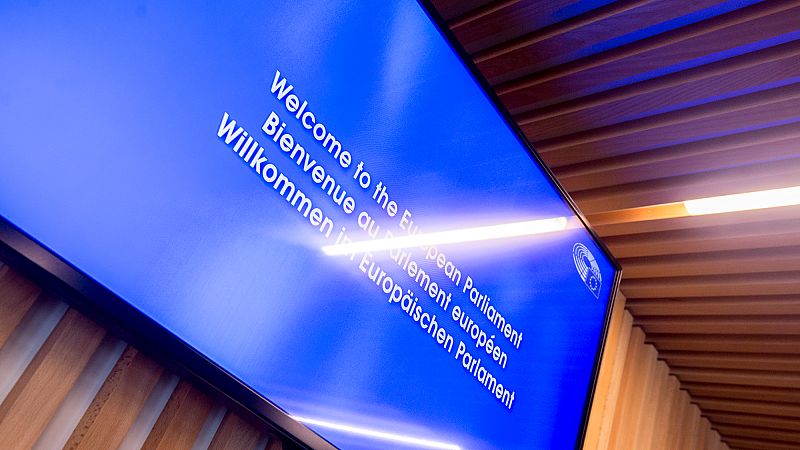‘Non-staffers go home’: European Parliament tightens rules on access to its premises

Until now, a coloured badge was the only ticket you needed: white with a yellow ‘Press’ line for journalists, green for lobbyists, orange for diplomats and so on.
With one of those dangling from your neck, you could roam both the Brussels and Strasbourg buildings of the European Parliament and casually bump into lawmakers in the corridors.
But as of next week, those casual encounters will become much rarer. Invitations signed off by MEPs will be mandatory for entire categories of visitors to enter certain areas.
This rule will apply to journalists, diplomats, and industry representatives, the Parliament confirmed to Euronews, marking the end of the institution’s open-door tradition for badge holders in the name of transparency and security.
“The changes introduced to the rules […] are part of a broader reform aligning with Parliament’s commitment to ensure transparency, accountability, and public trust,” the institution said.
The move comes against a backdrop of bruising scandals.
The Qatargate affair (a cash-for-influence probe that rocked Brussels only two years ago) and ongoing scrutiny of foreign lobbying, including by Huawei, have left lawmakers scrambling to show they’re serious about cleaning house.
These changes build on a first round of restrictions adopted in May, when lobbyists were told they had to activate their badges on every visit, declaring whether they were there for a meeting or an official event.
But the new measures go further, extending some restrictions to journalists and diplomats while limiting access to sensitive areas at certain times.
Roaming ends in the European Parliament
In a Europe proud of scrapping roaming phone charges, those who do not work for the European Parliament can essentially no longer roam freely within its premises.
The restrictions are tied to the Parliament’s quirky calendar system, in which each week is given a colour: red for plenary sessions, blue for political group meetings, pink for committee work, and white for downtime, when the building is supposed to empty out.
During those “white weeks”, such as the summer recess or the Christmas break, entry will be by invitation only.
But the clampdown goes further: regardless of the calendar colour, outsiders will also need an invitation to enter “peripheral buildings” in Brussels (all except the main Altiero Spinelli and József Antall blocks).
An invitation is also needed to set foot in Strasbourg outside of plenary sittings or, crucially, to wander around the area where lawmakers’ offices are.
Not everyone is convinced this latest tightening will do much for transparency.
“Well, this will bring business to the bars,” one industry representative told Euronews, referring to the Parliament’s unofficial meeting spots, such as the third-floor bar known as the ‘Mickey Mouse’ and the MEPs’ lounge, long popular with lobbyists and journalists alike.
The Parliament may be closing its doors, but the business of influence in Brussels is unlikely to stop at the threshold.
Diners and cafes outside of the European Parliament in the Place Luxembourg area are expected to become the new watering holes for deal-making, gossip, and off-the-record briefings.
Still, the new measures have sparked frustration among professionals.
“Once again, actions are taken without consultation with the profession. A performative approach that adds little to real transparency while undermining trust. All of this could be avoided through constructive dialogue,” said Emma Brown, president of the Society of European Affairs Professionals (SEAP) — basically the EU lobby of EU lobbyists.
Today

